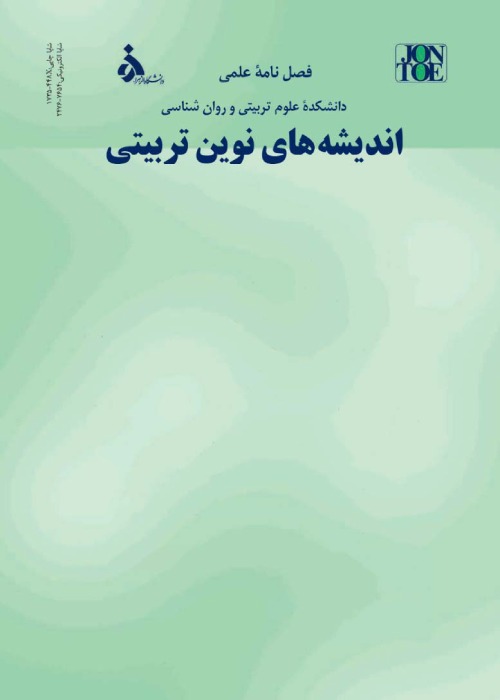Semantics of Power in the Academic Research Process: A Phenomenological Analysis of the Experiences of Students and Graduates of Tehran University
Author(s):
Article Type:
Research/Original Article (دارای رتبه معتبر)
Abstract:
Since power relations in academic research, especially group and team research, are undeniable, identifying the semantics of power in the research process using the experiences of students and graduates has been the purpose of this study. Since the exploration and description of the experiences of students and graduates from the meaning and concept of power in the research process has been the purpose of the research, the research plan is qualitative. In this research, graduate students have formed the study population; because students are mainly targeted by the power of professors. The sampling method of the present study is non-targeted and criterion-based. Based on this, students and graduates participated in this research to have the criterion of team research experience, availability and agreement to conduct the interview. A semi-structured interview was conducted with 19 students and graduates of the University of Tehran. In order to analyze the data, the Stokes-Colaizzi-Kane analysis method was used. The researcher's long-term and continuous participation in the research, avoiding early conclusions and reviewing the research colleagues have been the most important actions of the researchers in order to realize the validity and reliability of the research findings. Students and graduates believe that power in the research process can be positive, negative and even neutral, and it can also be guiding or inhibiting. Ethics, freedom of action, overt control, latent control, irresponsibility, influence, cooperation and support and guidance have been identified as meanings of power in the research process. Based on the research findings, due to the lack of positive experience about the influence of research supervisors on students, in order to effectively manage the research process, it is suggested that they consider leadership styles in this process.
Keywords:
Language:
Persian
Published:
Quarterly Journal of New Thoughts on Education, Volume:17 Issue: 2, 2021
Pages:
113 to 151
magiran.com/p2328572
دانلود و مطالعه متن این مقاله با یکی از روشهای زیر امکان پذیر است:
اشتراک شخصی
با عضویت و پرداخت آنلاین حق اشتراک یکساله به مبلغ 1,390,000ريال میتوانید 70 عنوان مطلب دانلود کنید!
اشتراک سازمانی
به کتابخانه دانشگاه یا محل کار خود پیشنهاد کنید تا اشتراک سازمانی این پایگاه را برای دسترسی نامحدود همه کاربران به متن مطالب تهیه نمایند!
توجه!
- حق عضویت دریافتی صرف حمایت از نشریات عضو و نگهداری، تکمیل و توسعه مگیران میشود.
- پرداخت حق اشتراک و دانلود مقالات اجازه بازنشر آن در سایر رسانههای چاپی و دیجیتال را به کاربر نمیدهد.
In order to view content subscription is required
Personal subscription
Subscribe magiran.com for 70 € euros via PayPal and download 70 articles during a year.
Organization subscription
Please contact us to subscribe your university or library for unlimited access!



